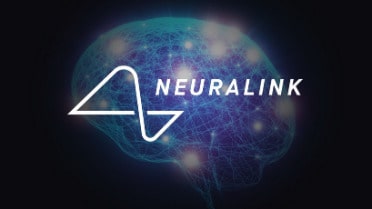Elon Musk‘s Neuralink knew its brain implant was likely to malfunction in its first human patient, but went ahead with the surgery anyway, a new report claims.
In January, the firm implanted a brain chip in its first patient, Noland Arbaugh, who is paralyzed from the shoulders down due to a 2016 diving accident.
But during the surgery, Mr Arbaugh suffered a life-threatening condition that later caused ‘a number of threads retracted from the brain,’ Neuralink said in a blog update last week.
Now, a report by Reuters citing ‘five people familiar with the matter’ claims that this issue had been ‘known about for years’ from animal testing.
Despite this, the firm deemed the risk low enough for a redesign not to be merited, the sources added.
Neuralink is testing its implant to give paralyzed patients the ability to use digital devices by thinking alone – a prospect that could help people with spinal cord injuries.
The company said last week that the implant’s tiny wires, which are thinner than a human hair, retracted from a patient’s brain in its first human trial, resulting in fewer electrodes that could measure brain signals.
The signals get translated into actions, such as moving a mouse cursor on a computer screen.
The company said it managed to restore the implant’s ability to monitor its patient’s brain signals by making changes that included modifying its algorithm to be more sensitive.
The US Food and Drug Administration was aware of the potential issue with the wires because the company shared the animal testing results as part of its application to begin human trials, one of the people said.
The FDA declined to comment on whether it was aware of the issue or its possible significance.
The agency told Reuters it would continue to monitor the safety of patients enrolled in Neuralink’s study.
Were Neuralink to continue the trials without a redesign, it could face challenges should more wires pull out and its tweak to the algorithm proves insufficient, one of the sources said.
But redesigning the threads comes with its own risks.
Anchoring them in the brain, for example, could result in brain tissue damage if the threads dislodge or if the company needs to remove the device, two of the sources said.
The company has sought to design the threads in a way that makes their removal seamless, so that the implant can be updated over time as the technology improves, current and former employees say.
Neuralink’s post last week made no mention of adverse health effects to Arbaugh and did not disclose how many of the device’s 64 threads pulled out or stopped collecting brain data.
